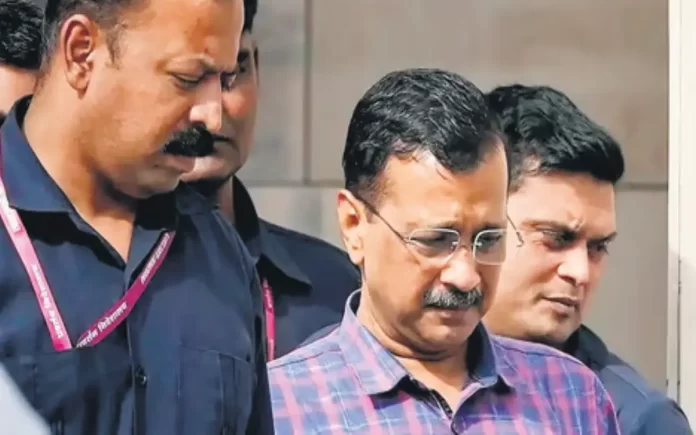New Delhi: In a significant development, the Delhi High Court rejected Delhi Chief Minister Arvind Kejriwal’s petition concerning the Excise Policy case today. Kejriwal had contested his arrest by the Enforcement Directorate (ED) in connection with the Excise Policy money laundering case. The bench, presided over by Justice Swarna Kanta Sharma, delivered the verdict, dismissing Kejriwal’s plea.
The court’s decision stemmed from various arguments presented during the proceedings. It emphasized that questioning witnesses is crucial in any legal matter, as their testimonies play a vital role in judicial proceedings. Moreover, the court disagreed with Kejriwal’s assertion that his arrest was based on the statements of witnesses.
Highlighting its findings, the High Court asserted that Kejriwal’s arrest by the ED was lawful. It noted that the evidence collected by the ED indicated Kejriwal’s involvement in the alleged conspiracy and concealment of proceeds of crime. The court stressed that Kejriwal’s association with the Aam Aadmi Party (AAP) was also under scrutiny.
Also Read | EU’s Borrell Raises Alarm: Full-Scale Conflict in Europe No Longer a Distant Concern
The High Court underscored that Kejriwal’s failure to cooperate with the investigation had consequences, affecting others in judicial custody. Last week, the bench had reserved judgment after thorough arguments from both sides. The court clarified that the case was not a dispute between the Central government and Kejriwal but between Kejriwal and the ED.
Kejriwal was taken into custody by the Enforcement Directorate on March 21 in connection with the excise policy case. Senior advocate Abhishek Manu Singhvi, representing Kejriwal, had raised concerns about the timing of the ED’s actions, alleging political motives. However, the court dismissed these claims, citing Kejriwal’s repeated refusal to comply with ED summonses.
Also Read | UK-Rwanda Migrant Deportation Plan: First Flights Set for Spring
During the proceedings, the ED’s counsel emphasized that the investigation was ongoing, and Kejriwal’s arrest was justified given his non-cooperation. The court rejected Kejriwal’s attempt to challenge the remand orders while simultaneously accepting them, asserting the need for consistency in legal positions.
The ruling signifies a critical juncture in the legal battle surrounding the Excise Policy case, underscoring the complexities and legal nuances involved.



